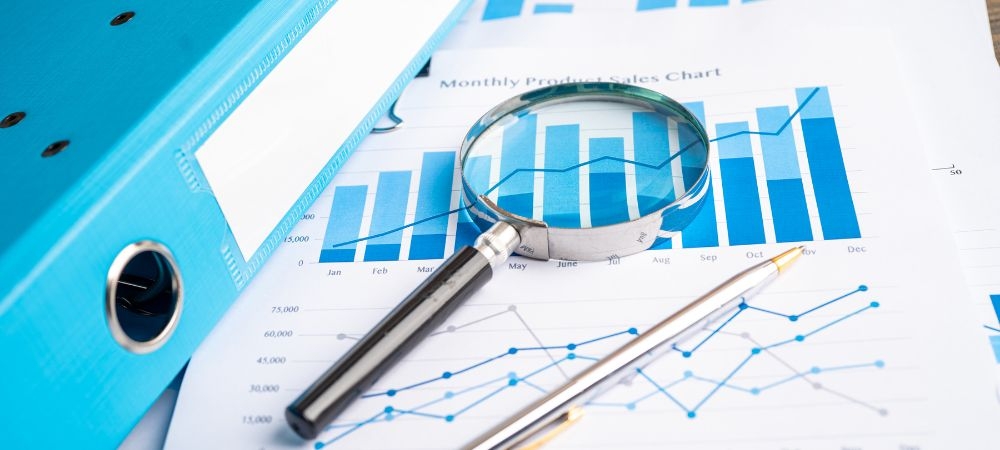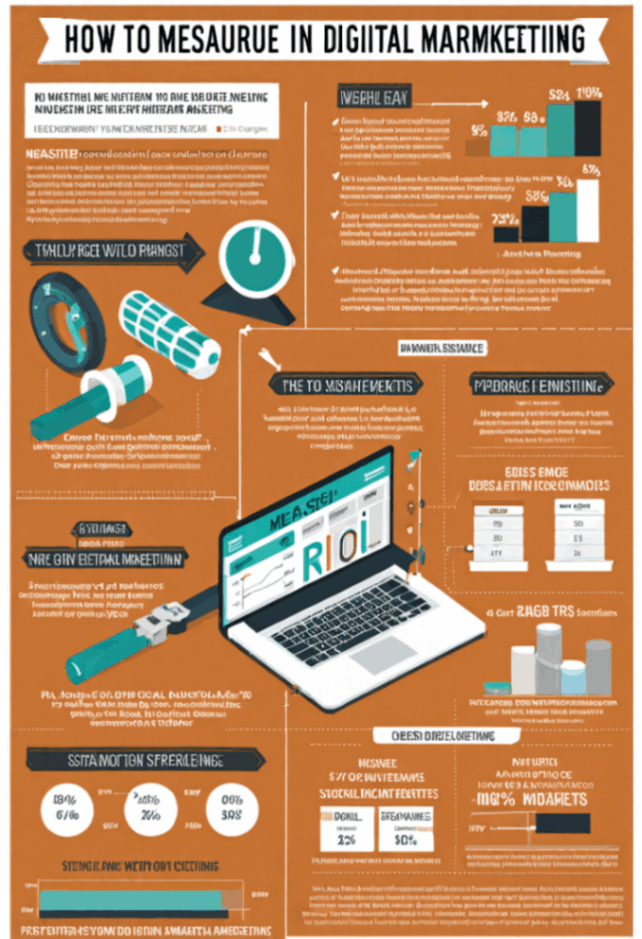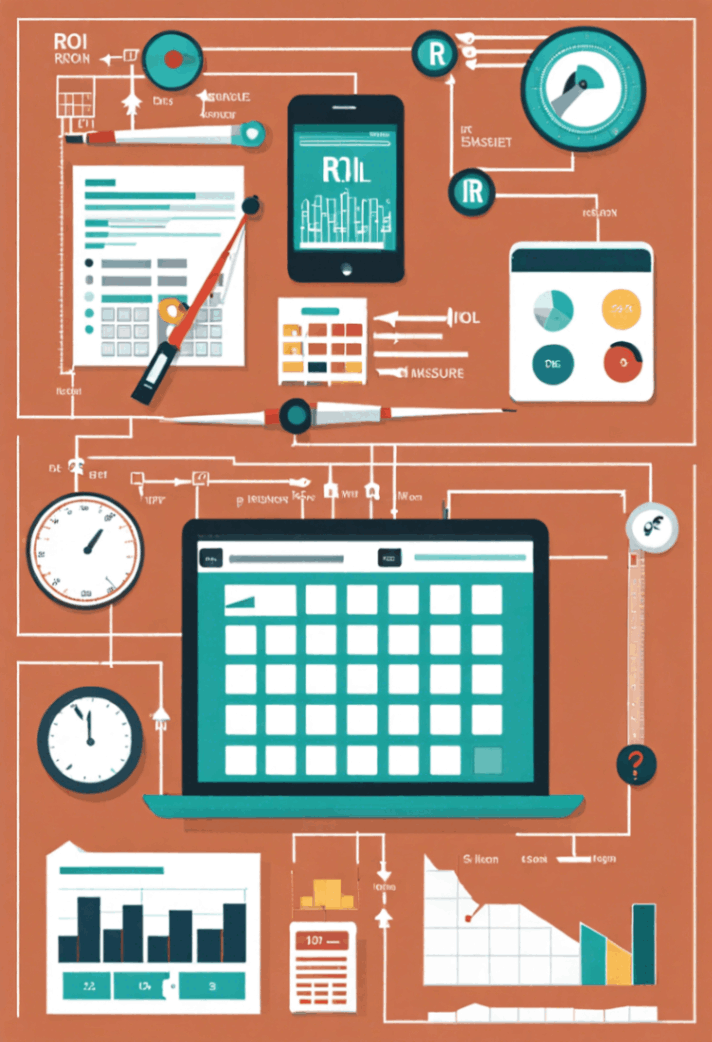

Data analysis plays a crucial role in social media strategy. Without it, we can't understand the effectiveness of our efforts. By analyzing data, we get insights into what works and what doesn't work on social media platforms. It helps us make informed decisions and optimize our strategies for better results.
One of the reasons why data analysis is important in social media strategy is that it allows us to track key metrics like engagement, reach, and conversion rates. additional information accessible click on currently. added details accessible see that. These metrics give us a clear picture of how our content is performing and whether it resonates with our target audience.
Moreover, data analysis helps us identify trends and patterns that can inform future strategies. By looking at past performance data, we can predict future outcomes and adjust our approach accordingly.
In conclusion, data analysis is essential for maximizing the impact of your social media strategy. It provides valuable insights that enable you to make informed decisions and optimize your efforts for success. Don't underestimate the power of data analysis in shaping your social media strategy!
When it comes to social media success, there are some key metrics that you should keep an eye on. These metrics can give you valuable insights into how well your social media strategy is performing and help you make informed decisions about future campaigns.
added information accessible view it. One of the most important metrics to monitor is engagement. This includes likes, comments, shares, and other forms of interaction with your content. High levels of engagement indicate that your audience is interested in what you have to say and are actively engaging with your brand.
Another important metric is reach. This tells you how many people are seeing your content and can give you a sense of how well your message is resonating with your target audience. If your reach is low, it may be a sign that you need to adjust your targeting or messaging.
Conversion rate is another key metric to watch. This measures how many people are taking a desired action after seeing your social media content, such as making a purchase or signing up for a newsletter. A high conversion rate indicates that your content is effectively driving action from your audience.
Overall, keeping an eye on these key metrics can help you understand the effectiveness of your social media efforts and make adjustments as needed to improve performance. Don't underestimate the power of analytics in shaping successful campaigns!
The first picture ever taken was by Joseph Nicéphore Niépce in 1826 or 1827, and it's called " Sight from the Window at Le Gras," requiring an eight-hour direct exposure.
The term "megapixel" was first used in 1984, defining the number of pixels in an picture, which is vital for determining photo quality.
The very first electronic camera was established by Eastman Kodak designer Steven Sasson in 1975, considering 8 extra pounds (3.6 kg) and tape-recording black and white photos to a cassette tape.
Ansel Adams, famous for his black and white landscapes, used a method called the " Area System" to determine optimum film direct exposure and adjust the contrast of the last print.
Social media marketing, it's all about connecting with your audience, right?. Whether you're running a small business or a big corporation, building relationships with followers and customers through social media is key.

Posted by on 2024-06-01
Social media marketing provides businesses with a competitive advantage in today's digital landscape.. By leveraging platforms such as Facebook, Instagram, and Twitter, companies can reach a wider audience and engage with their customers on a more personal level.

Posted by on 2024-06-01
Utilizing analytics to track performance and make data-driven decisions is key in effective social media marketing.. By analyzing metrics such as engagement rates, click-through rates, and conversion rates, marketers can gain valuable insights into the effectiveness of their campaigns.
One strategy that has been proven to be effective in social media marketing is targeting specific audience segments based on their interests, demographics, and behaviors.

Posted by on 2024-06-01
So, you wanna make your online presence go through the roof with social media marketing, huh?. Well, one key thing you gotta do is analyze your data and tweak your strategies for best results.

Posted by on 2024-06-01
When it comes to tracking and analyzing social media performance, there are a variety of tools available that can help you stay on top of your game. From monitoring engagement metrics to measuring reach and impressions, these tools can provide valuable insights into how your content is resonating with your audience.
One popular tool for tracking social media performance is Hootsuite, which allows you to schedule posts, monitor mentions, and track key metrics all in one place. Another useful tool is Sprout Social, which offers in-depth analytics on audience demographics and behavior patterns.
But don't forget about free tools like Google Analytics and Facebook Insights, which can also provide valuable data on user engagement and website traffic. And let's not overlook the power of good old-fashioned manual tracking - sometimes nothing beats a good spreadsheet for keeping tabs on your social media performance.
So next time you're looking to improve your social media strategy, consider using some of these tools for tracking and analyzing performance - they could be just what you need to take your online presence to the next level!

Understanding audience behavior through analytics is a crucial aspect of any digital marketing strategy. By analyzing metrics and data, we can gain valuable insights into how our target audience interacts with our content. This allows us to make informed decisions on how to optimize our campaigns for better results.
One of the key benefits of using analytics is that it helps us identify trends and patterns in audience behavior. This can help us understand what types of content resonate with our audience and what drives them to take action. By tracking metrics such as click-through rates, conversion rates, and engagement levels, we can see which strategies are working and which ones need improvement.
Additionally, analytics can provide us with real-time feedback on the performance of our campaigns. This allows us to quickly pivot or make adjustments if something isn't working as expected. Without this data-driven approach, we would be left guessing at what is resonating with our audience and potentially wasting time and resources on ineffective tactics.
In conclusion, understanding audience behavior through analytics is essential for optimizing digital marketing efforts. By leveraging data and metrics, we can make informed decisions that drive better results and ultimately improve the overall success of our campaigns. So let's dive into the world of analytics and unlock the power of understanding our audience like never before!
Measuring the ROI and effectiveness of social media campaigns can be a daunting task, but it is essential for determining the success of your marketing efforts. By analyzing metrics and analytics, you can gain valuable insights into how well your campaigns are performing.
It's important to track key performance indicators (KPIs) such as engagement rates, click-through rates, and conversion rates to gauge the impact of your social media activities. Without measuring these metrics, you may not know if your campaigns are reaching the right audience or generating the desired results.
There are various tools available that can help you track and analyze the performance of your social media campaigns, such as Google Analytics, Facebook Insights, and Hootsuite. These tools can provide valuable data on how users are interacting with your content, which platforms are driving the most traffic, and which posts are resonating with your audience.
By regularly monitoring and evaluating the performance of your social media campaigns, you can make informed decisions on where to allocate resources and optimize your marketing strategies. Don't underestimate the power of analytics in guiding your marketing efforts they can provide valuable insights that can help you achieve better results.
In conclusion, measuring the ROI and effectiveness of social media campaigns is crucial for understanding how well your marketing efforts are performing. By tracking KPIs and utilizing analytics tools, you can gain valuable insights that will help you improve your campaigns and drive better results.


When it comes to utilizing data to optimize content and engagement strategies, there are a few key things to keep in mind. Data can provide valuable insights into what is working well and what isn't so that we can make informed decisions about how to improve our efforts. By analyzing metrics and analytics, we can identify trends, patterns, and opportunities for growth.
For example, if we notice that a particular piece of content is not generating the desired engagement, we can use data to understand why. Maybe the timing was off or the messaging wasn't resonating with our audience. By using this information, we can make adjustments to better meet the needs and interests of our target audience.
Furthermore, data can help us track the effectiveness of our content over time. By regularly monitoring key metrics such as click-through rates, conversion rates, and social shares, we can see how our strategies are performing and make necessary tweaks along the way.
In conclusion, utilizing data to optimize content and engagement strategies is crucial for success in today's digital landscape. By leveraging analytics and metrics effectively, we can ensure that our efforts are reaching the right people with the right message at the right time. So let's roll up our sleeves and get started!